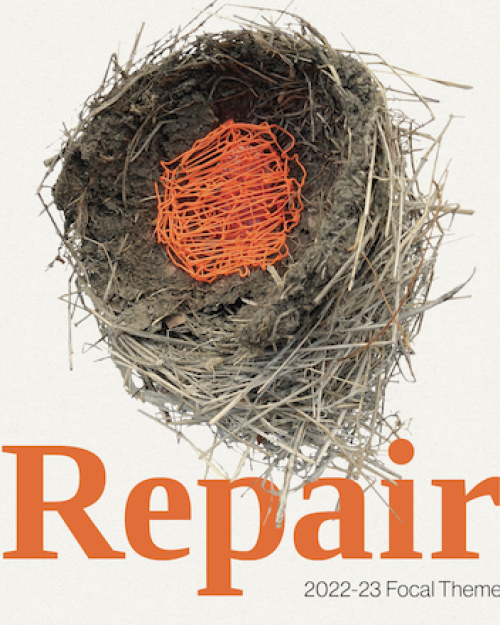Sixteen scholars have spent this year reflecting on and reimagining the theme of “Repair” as part of their fellowship at the Society for the Humanities. The year of Repair concludes with the Society’s annual Fellows’ research conference on April 27 and 28.
The two-day conference will include two invited keynote lectures as well as multiple panels featuring Society Fellows who will present work from multiple humanities perspectives. Talk titles include “Upcycle” and “The Life and Death of a Tropical Polar Bear”; disciplines represented include anthropology, history, political theory, and comparative literature.
Free and open to the public, the conference will be held at the A.D. White House. Registration is not necessary and refreshments will be provided.
“There is perhaps no better term to describe not the world as it is but what it needs than ‘repair.’ From individual wellness to social isolation, from exploitive practices to extractive economies, from past crimes to future harms, we are faced with countless sites calling for repair,” said Paul Fleming, Taylor Director for the Society for the Humanities and L. Sanford and Jo Mills Reis Professor of Humanities in the Department of German Studies in the College of Arts and Sciences.
The conference showcases the Fellows’ work and aims to prompt discussion from both Cornell faculty respondents and audience Q&A. Speakers include faculty fellows from Arts and Sciences — Jon Parmenter, associate professor of history, Juno Parreñas, associate professor of science and technology studies and feminist, gender, and sexuality studies, and Imane Terhmina, assistant professor of romance studies — alongside external Society Fellows and Mellon Graduate Fellows. Find the list of 2022-23 Society Fellows with descriptions of individual research projects online.
The first keynote on Friday, April 28, 11:30 a.m. to 1:00 p.m., will be delivered by Audra Simpson, professor in the Department of Anthropology at Columbia University and currently visiting professor in the Department of Race, Diaspora, and Indigeneity at the University of Chicago. Simpson, formerly on the anthropology faculty at Cornell, is a political anthropologist whose research concentrations include indigeneity, settler colonialism, political and cultural theory, governance, and narrative gender and race. Her talk, entitled “Savage States: Settler Governance in an Age of Sorrow,” centers on recent (1990 – near present) Canadian history, examining, as she writes, “how the Canadian practice of settler governance has adjusted itself in line with global trends and rights paradigms away from overt violence…Here an oral and textual history of the notion of ‘reconciliation’ is constructed and analyzed with recourse to Indigenous criticism of this affective and political project of repair.”
The closing keynote (also Friday, April 28) will be from Mimi Thi Nguyen, associate professor and chair of Gender and Women's Studies at the University of Illinois Urbana-Champaign. Exploring a controversial beauty pageant planned for victims of Cambodia’s landmines, Nguyen’s talk, “The Right To Be Beautiful,” contextualizes the pageant as “part humanitarian intervention and part performance.” The talk will “focus narrowly on the pageant’s maxim, everyone has the right to be beautiful, in the time and space of rights claims that unfold tactically under a quasi-authoritarian regime, through a humanitarian campaign for the social recognition of the war damaged.”
The Society’s 2023-24 theme of “Crossing” will commence in August with a new cohort of Fellows. Themes are selected annually by the Humanities Council.
Year of ‘Repair’ ends with research conference at Society for the Humanities
Society for the Humanities




